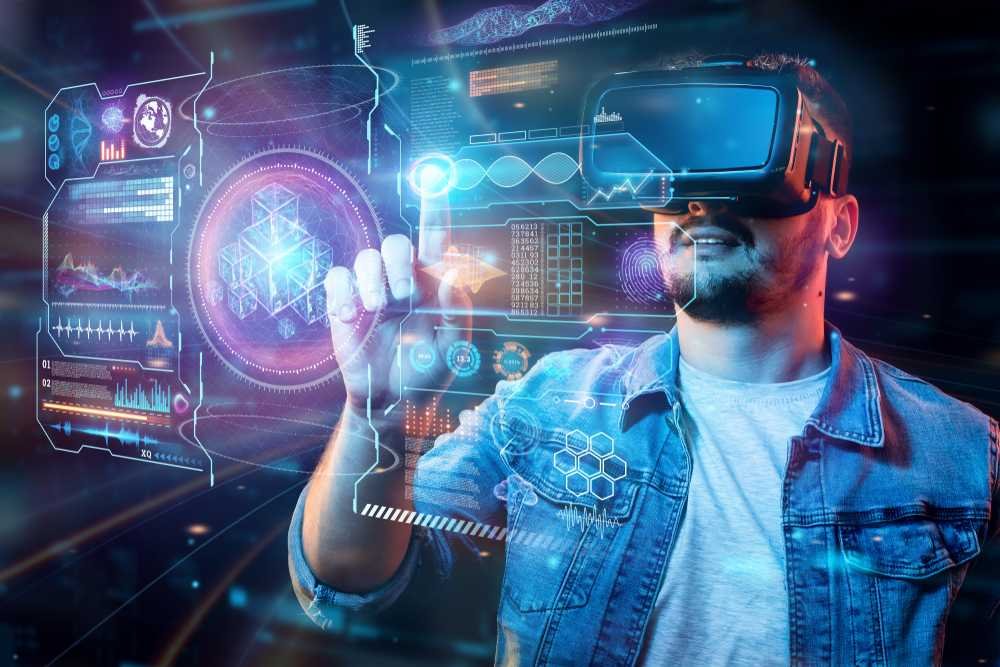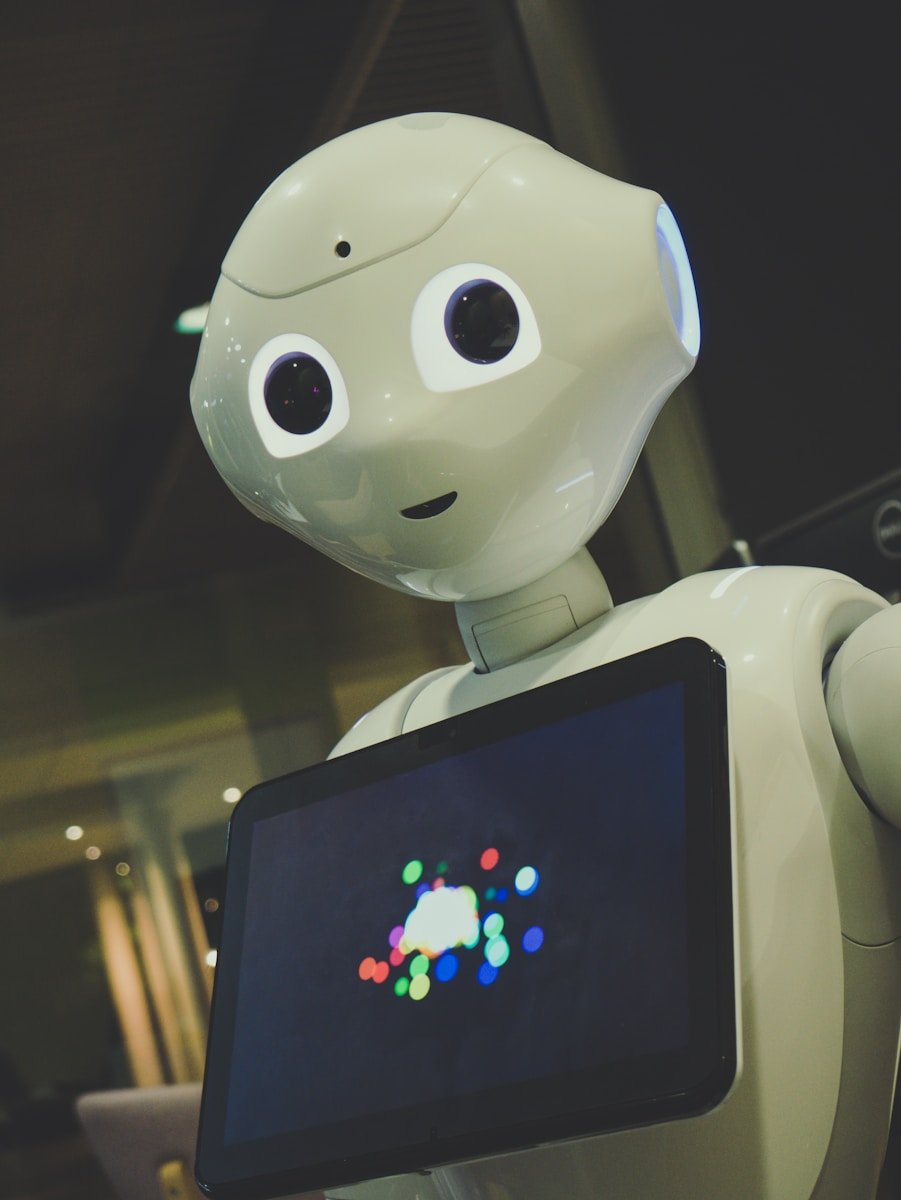
User experience (UX) design is constantly evolving, driven by emerging technologies and innovations. As technology advances, so do the expectations of users. In this blog post, we will explore some of the key trends and developments that are shaping the future of UX.
Artificial Intelligence (AI) and Machine Learning (ML) are revolutionizing the way we interact with technology. These technologies enable systems to learn and adapt based on user behavior, preferences, and patterns. In the context of UX, AI and ML can be used to personalize user experiences, anticipate user needs, and provide more relevant and tailored content.
For example, AI-powered chatbots are becoming increasingly common in customer support services. These chatbots can understand and respond to user queries, providing instant assistance and improving overall user satisfaction. AI and ML can also be used to analyze user data and generate insights that can inform UX design decisions.
Augmented Reality (AR) and Virtual Reality (VR) technologies are transforming the way we perceive and interact with digital content. AR overlays digital information onto the real world, while VR immerses users in a completely virtual environment. Both AR and VR have the potential to enhance user experiences by creating more engaging and interactive interfaces.
In terms of UX, AR and VR can be used to create realistic simulations, allowing users to visualize products or experiences before making a purchase or decision. For example, furniture retailers can use AR to enable customers to see how a particular piece of furniture would look in their own homes. VR can also be used to create immersive training experiences, such as flight simulations for pilots or medical procedures for healthcare professionals.
The Internet of Things (IoT) refers to the network of physical devices, vehicles, appliances, and other objects embedded with sensors, software, and connectivity. These devices can collect and exchange data, enabling them to communicate and interact with each other. The IoT has the potential to revolutionize UX by creating more seamless and integrated experiences.
For example, smart homes equipped with IoT devices can automate various tasks, such as adjusting the temperature, turning on lights, or ordering groceries. This level of automation can greatly enhance user convenience and comfort. In addition, IoT devices can gather data about user preferences and behavior, allowing for more personalized and context-aware experiences.
The future of UX is exciting and full of possibilities. Emerging technologies such as AI and ML, AR and VR, and the IoT are reshaping the way we design and interact with digital experiences. As UX designers, it is important to stay informed about these trends and innovations, and to adapt our practices to meet the evolving needs and expectations of users.
By embracing these emerging technologies and leveraging them to create more personalized, engaging, and seamless experiences, we can ensure that the future of UX is user-centric and enhances the overall quality of digital interactions.

Artificial Intelligence (AI) has revolutionized various industries, and digital marketing is no exception. With its ability to analyze vast amounts of data, automate processes, and provide personalized experiences, AI has transformed the way businesses approach marketing strategies. In this blog post, we will explore the significant impact of AI on digital marketing and how it is shaping the future of the industry.
One of the most significant advantages of AI in digital marketing is its ability to analyze large sets of data quickly and efficiently. AI-powered tools can collect, process, and interpret data from various sources, including customer behavior, social media interactions, and website analytics. This data analysis provides valuable insights into customer preferences, trends, and patterns, allowing marketers to make data-driven decisions.
By leveraging AI, marketers can gain a deeper understanding of their target audience and create more personalized and targeted marketing campaigns. AI algorithms can segment customers based on their demographics, interests, and behaviors, enabling marketers to deliver customized content and offers that resonate with individual customers.
AI automates repetitive and time-consuming tasks, freeing up marketers to focus on more strategic activities. For instance, chatbots powered by AI can handle customer inquiries, provide real-time support, and even make product recommendations. This automation not only enhances the customer experience but also improves operational efficiency.
AI-powered tools can also automate email marketing campaigns, lead nurturing, and social media scheduling. By analyzing customer behavior and engagement patterns, AI algorithms can optimize the timing, content, and frequency of marketing messages, increasing the chances of conversion.
AI has the potential to revolutionize the customer experience by providing personalized interactions and recommendations. Through machine learning algorithms, AI systems can analyze customer data and predict their preferences, allowing businesses to deliver tailored experiences.
For example, AI can power recommendation engines that suggest relevant products or content based on a customer’s browsing and purchase history. This level of personalization not only increases customer satisfaction but also drives higher engagement and conversion rates.
AI algorithms can analyze historical data and identify patterns to make accurate predictions about future trends and customer behavior. This predictive analytics enables businesses to anticipate market changes, optimize marketing strategies, and make informed decisions.
By leveraging AI’s predictive capabilities, marketers can identify potential high-value customers, forecast demand, and optimize pricing strategies. This proactive approach helps businesses stay ahead of the competition and maximize their marketing ROI.
As AI continues to evolve, its impact on digital marketing will only grow stronger. The future of AI in digital marketing holds exciting possibilities, such as:
In conclusion, AI has had a profound impact on digital marketing, revolutionizing data analysis, automating processes, and enhancing the customer experience. As businesses embrace AI technologies, they gain a competitive advantage in the ever-evolving digital landscape. The future of AI in digital marketing looks promising, with endless possibilities for personalized experiences and advanced marketing strategies.
